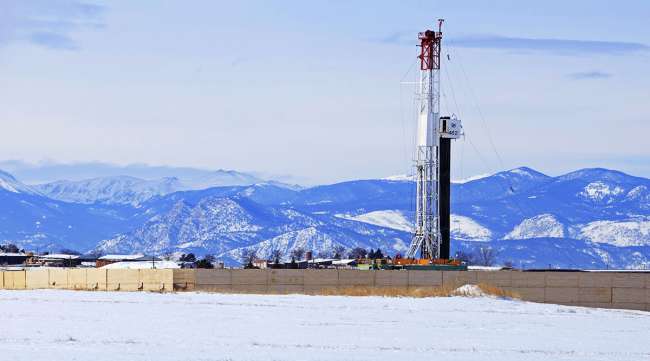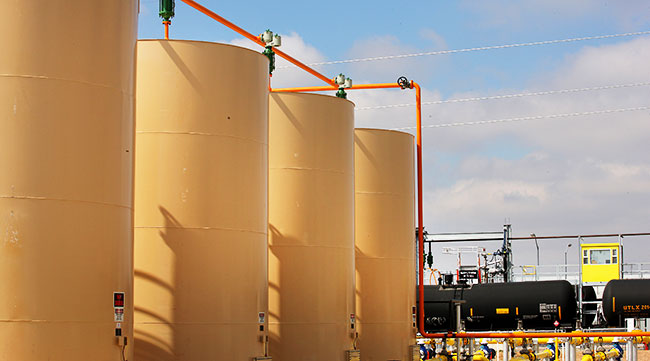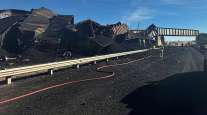Bill to Reshape Colorado Oil, Gas Regulations Coming Soon, Democrats Say

Tighter rules on Colorado oil and gas development struck out at the ballot box in November and at the state Supreme Court in January. Now, Democrats, who control the Legislature, plan to introduce a sweeping bill to redefine the Colorado Oil & Gas Conservation Commission’s mission to emphasize public health and safety.
The measure also likely would give local governments control of proposed oil and gas permits.
“Local development and zoning are the bread and butter issues of local city councils and county commissions,” Sen. Mike Foote (D-Lafayette) said. “Only oil and gas is exempt from that currently. They should have the same power [over that industry].”
Democrats have been talking about such legislation since the 2019 session opened, and lately their plans have been gelling.
The move likely will be in one bill, House Speaker KC Becker (D-Boulder) said. “That’s better than throwing spaghetti at the wall and seeing what sticks.”
Working with Becker on the measure is Senate Majority Leader Steve Fenberg (D-Boulder), who said the state hasn’t passed substantial legislation on oil and gas regulation in six years.
“It’s actually probably the most meaningful reform that Colorado will have ever seen in oil and gas,” Fenberg said.
Colorado’s oil and gas industry has expanded dramatically over the past fifteen years, and affected communities still have little to no control over the heavy industrial extraction operations happening right in their back yards. #Fracking https://t.co/w7I1j73w2E — Westword (@DenverWestword) February 5, 2019
The legislation could be introduced in the House as early as March, he said.
The Colorado Petroleum Council remains optimistic that legislation will account for the diverse voices in the state’s energy field, said Executive Director Tracee Bentley, who will depart next month to lead an industry group in Texas.
“As ever, we stand ready to work collaboratively with the Legislature to ensure that every voice is represented in the formulation of new laws while protecting the 232,900 Colorado women and men whose livelihoods depend on the natural gas and oil industry,” Bentley said through a spokesman.
But Republican legislators have been sounding the alarm about the risks of “overreach” by Democrats on oil and gas.
“Attempts to stifle Colorado’s energy industry hurts every person and company in the state,” state Sen. Jerry Sonnenberg (R-Sterling) said last month. “The oil and gas industry has done an excellent job navigating the toughest rules in the country to make sure we have heat in our homes, gas in our cars and everyday products like our cellphones and computers.”
But Becker said the Democrats’ ideas are much needed. For too long, she said, the state’s fossil fuel industry has run rampant under old rules and regulations, putting public health and safety at risk and degrading air quality along the Front Range.

An oil operation located in Colordao. (Matthew Staver/Bloomberg News)
“It hasn’t been dealt with.” Voters in November defeated Proposition 112, which would have increased the buffer zone between buildings and new oil and gas operations to 2,500 feet from the current 500 feet around homes and 1,000 feet around schools. The industry argued that the measure would decimate the state’s industry, costing jobs and severely harming Colorado’s economy.
Under state law, the court ruled, the commission must “foster the development of oil and gas resources” and factor in whether health and environmental protections are cost-effective and technically feasible.
In addition to a shift in regulators’ priorities, Foote said, cities and counties should be able to decide what oil and gas operations are allowed where.
“Local government should be able to deal with oil and gas development like they do anything else,” Foote said.
Despite conciliatory comments by the Petroleum Council’s Bentley and others, Fenberg said he anticipates pushback from the industry.
“Pretty much any time oil and gas reform has been floated, the industry has often said it’s going to cost hundreds of thousands of jobs and bankrupt companies,” he said. “Some of it’s a scare tactic. That’s normal. That’s what happens in politics when someone’s trying to win a fight.”
Industry jobs must be considered, but health, safety and the environment are most important, he said. “If they feel like they can’t exist or be economically viable without guaranteeing or taking every precaution to ensure health and safety for people, then there’s a problem.”
Representatives of Colorado Rising, the group behind Proposition 112, have been working with legislators to craft the bill.
Silverii: It’s a bit rich for Colorado’s oil and gas industry to call for “responsibility” after backing a catastrophic amendment https://t.co/6fhP9m94Rs — Denver Post Opinion (@denveropinion) February 22, 2019
It’s a good start, spokeswoman Anne Lee Foster said, “but it by no means addresses all of the community’s concerns regarding residential drilling and fracking. We want the bill to pass, but this is definitely a base-level improvement as opposed to a comprehensive approach to addressing all of the issues.”
The oil and gas commission’s standards must be changed to bolster enforcement, Foster said. Its main mission should be regulation, not promotion of the industry, she said.
As for setbacks, Foster said, “This is coming to a town near you. If you’re not impacted now, you will be in the future. This is something people need to pay attention to before their communities are impacted.”
More legislation likely will be needed, she said, and her organization might bring another ballot issue to push more comprehensive change.
Gov. Jared Polis — who for years had sometimes frosty relations with the oil and gas industry and once proposed boosting setbacks — sounded a more conciliatory tone during his gubernatorial campaign. Yet as governor, he has signaled that he is open to setting new priorities for energy regulation.
“We want to prioritize the consideration of public health and safety, as well as the environment,” Polis said last month. “We are ready to work with the Legislature and the Colorado Oil & Gas Conservation Commission to ensure that Coloradans are safe and that residents and neighbors have a say in where and when industrial activities take place near where they live.”
Distributed by Tribune Content Agency, LLC




